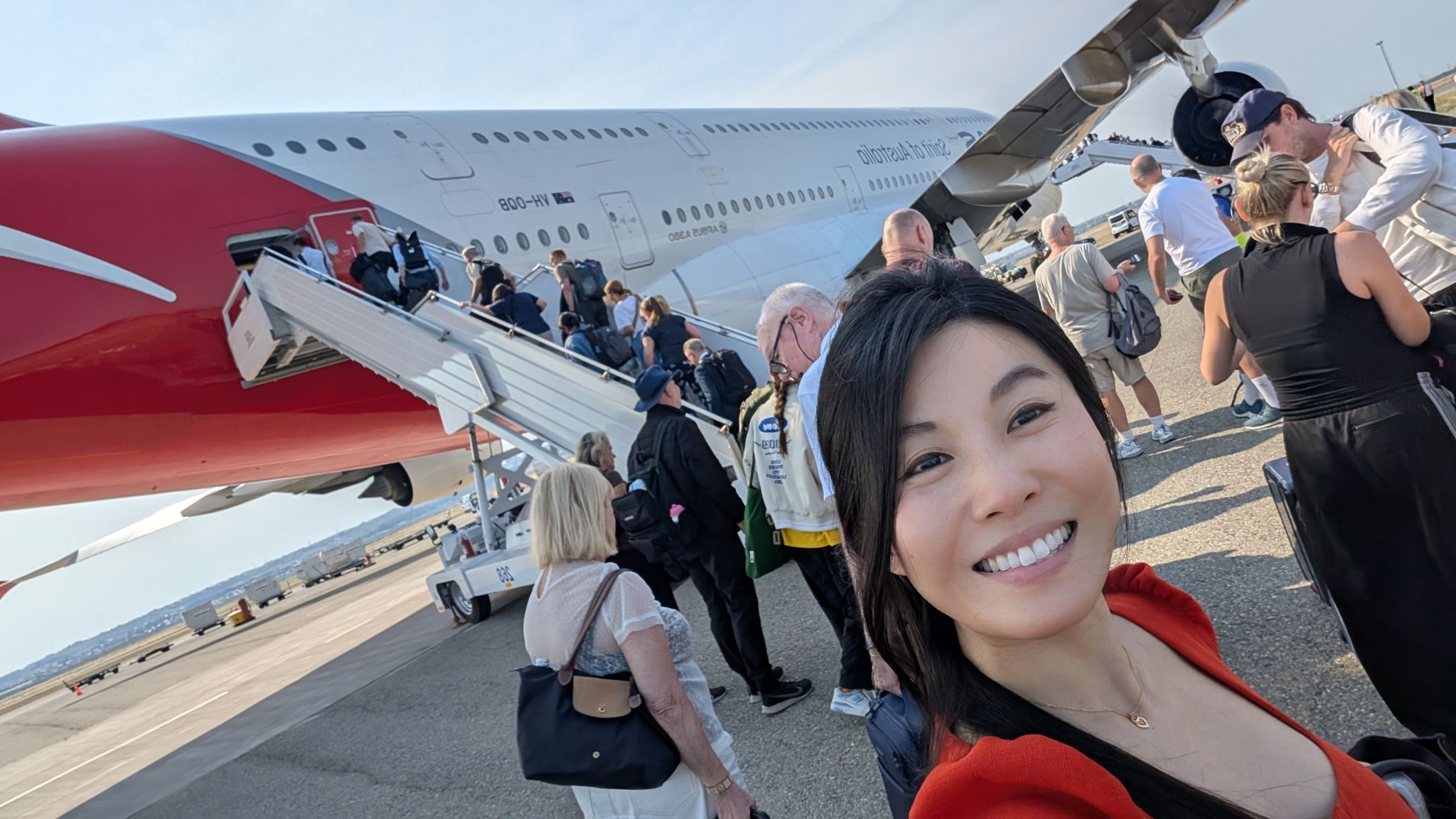Life-saving care at 38,000 feet
As a healthcare worker, the call to action can occur anytime, anywhere. For Dr Tanya Trinh, Ophthalmologist at Sydney/Sydney Eye Hospital, that call came halfway around the world, mid-air, onboard an A380.
About six hours into flight QF2 from London to Singapore, Dr Trinh responded to a call to assist a patient in medical distress.
Dr Trinh and fellow doctors on board, colorectal surgeons Hamish Urquhart and Stephen Tobin, provided much-needed medical assistance in the confines of cramped seats and a dimly-lit aircraft that was flying through the night.
“Added to this,” Dr Trinh explains, “was the time pressure that, in twenty minutes, we were about to enter the airspace above Afghanistan in which there would be no turning back, and no landing if the patient deteriorated, and the closest next landing was Mumbai some three hours away. So we had to make a call, and quickly.”
With that in mind, the decision was made to divert the aircraft to Baku, Azerbaijan, the closest airport that was just big enough to handle the superjumbo.
Dr Trinh says the Qantas crew were incredibly supportive and helpful as they supported the passenger in medical distress and their partner, and then with the mammoth task of organising food, accommodation and emergency visas for 400 passengers.
The decision to divert when they did, it turns out, was the right one.
“It was also so lovely to close the loop in finding out upon boarding that we had made the right call for the patient and that they are safely receiving the serious and urgent care that they needed,” Dr Trinh says.
“I learnt so much about the process itself whilst going through the motions. How do you get rid of sharps safely in the back of a plane? What types of defibrillators are available? Where do you hang fluids when you have no IV pole? What medications are and aren't available, and how much of it will last for however long we would be flying? And coincidentally, what a wondrous invention smart watches are, in providing insight into a patient’s baseline cardiac capacity.”
“So thank you to everyone on board that who either assisted or who graciously accepted what needed to happen and took it in their stride.”
Published 23 June 2025
